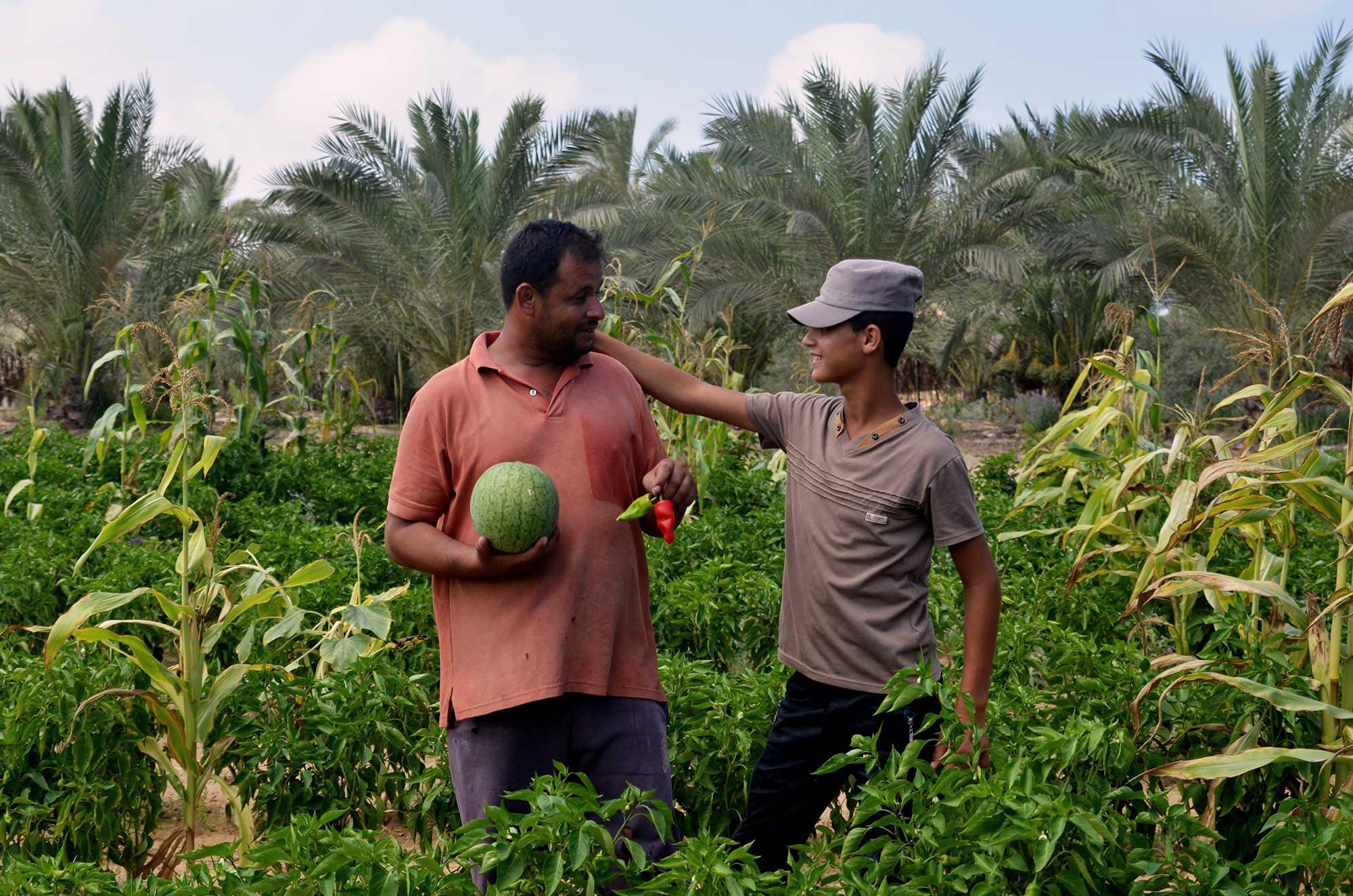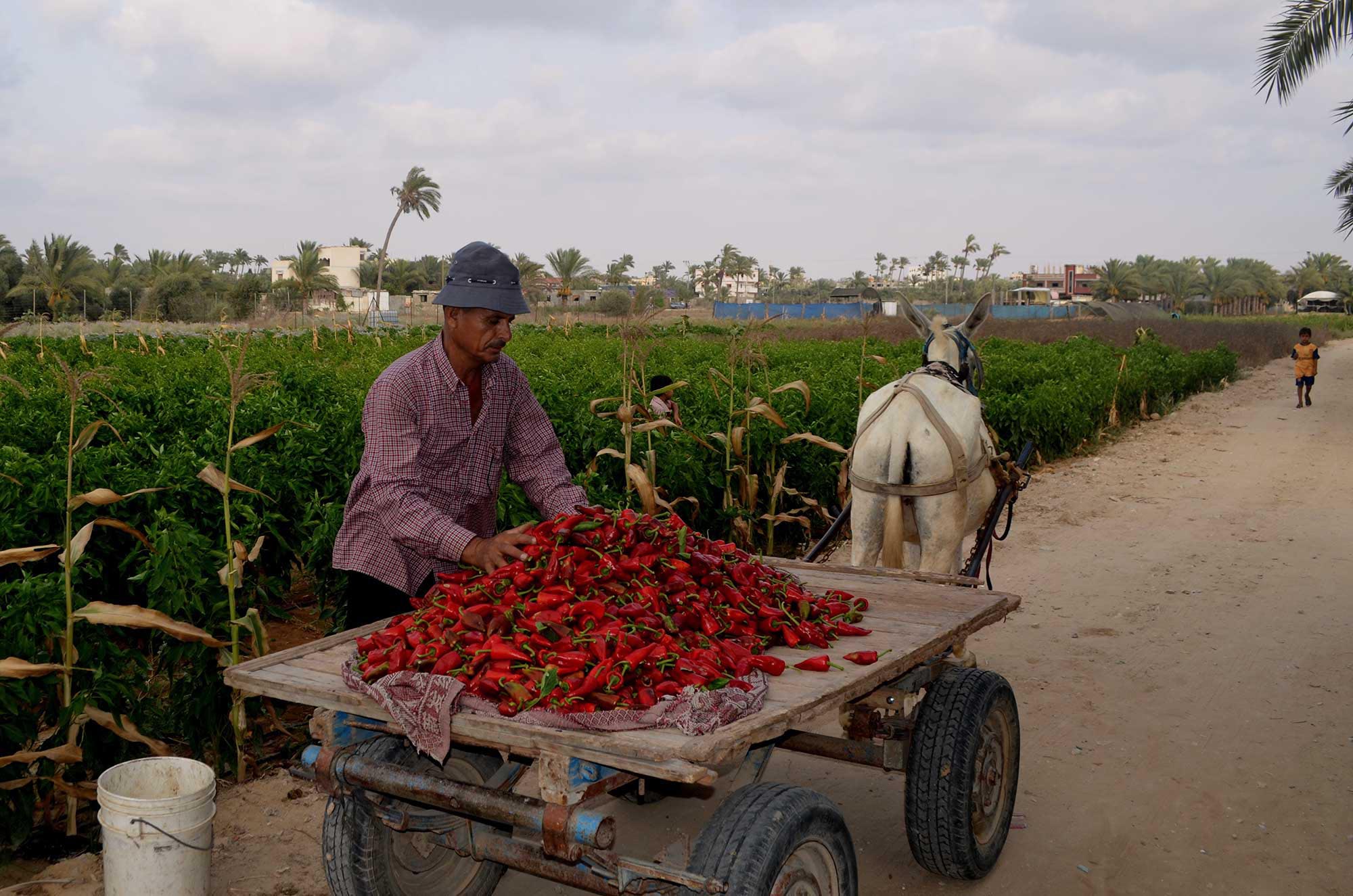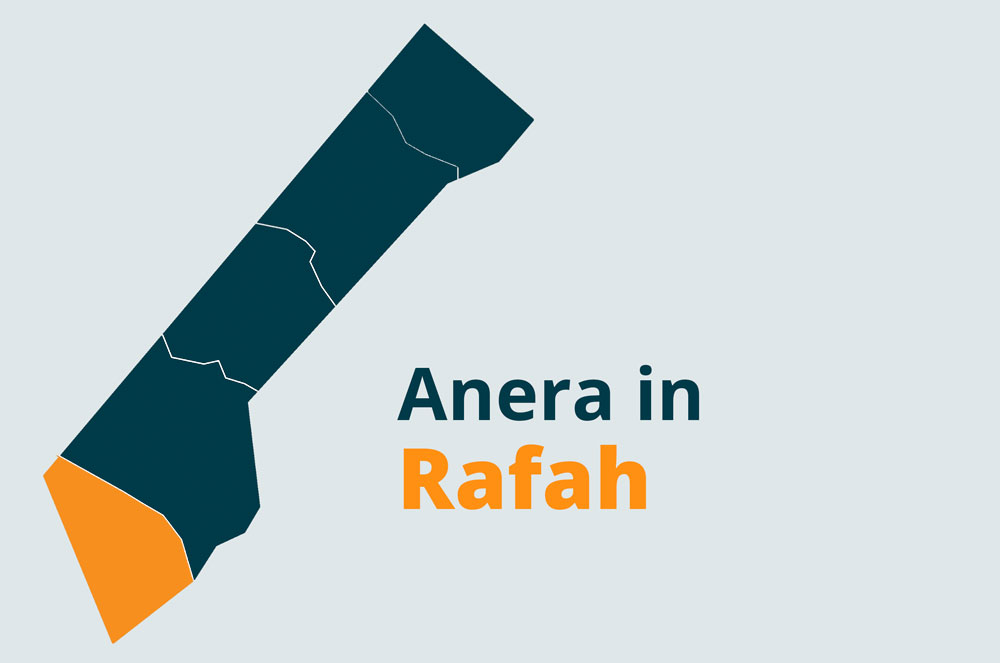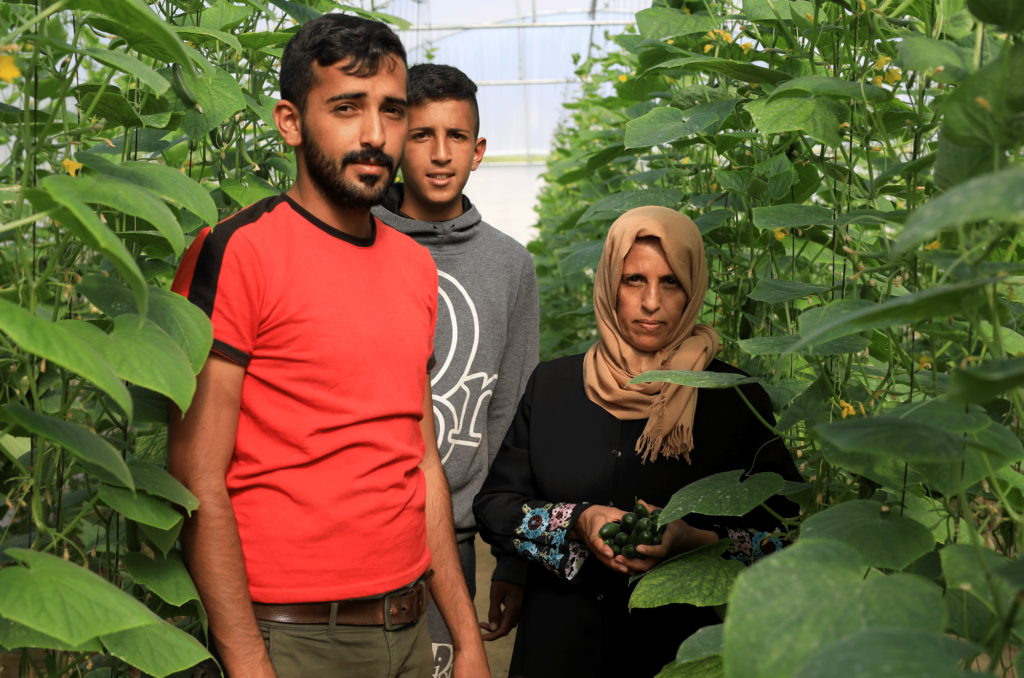Jul, 2017
Amid the spiraling Gaza humanitarian crisis, four farmers work together to respond to major problems that result from power outages and water scarcity.
As the scorching Gaza sun begins to cool down in the afternoon, a quartet of farmers dash through their fields to tend to crops and remove weeds. Suleiman, Ismael, Ibrahim and Hafez are determined to finish their mission while the weather is bearable.
“We need to collect all the produce and send it out to the vegetable market in the heart of Deir El Balah city,” said Suleiman.
Catching his breath, Ismael explains his passion for his land. He jokes, “I live on the farmland more than I do in my own home. I spend more time here than I do with my own kids.”
The four Gaza farming families are fortunate to have a plot of land with sandy soil that is perfect for growing peppers and a wide variety of other crops. Ibrahim, for instance, harvested 800 lbs of peppers this season with the help of his wife and son. “I paid my son for his work,” he said, “so he can raise and feed his pigeons. He adores those birds!”

With cash from his crops, Hafez sent his only daughter to college. In the past, hard times in the fields meant that his son had to drop out of school because the family couldn’t afford tuition.
Although the four neighboring farmers have different financial situations, they share knowledge and experience. Whenever possible, they lend a hand to each other and, as a result, maximize their benefits. “This season we waited for the peppers to turn bright red,” he said, “so we could sell them at a higher price as challis or ground pepper.”
Recently, the relationship between the four farmers deepened when they joined an Anera agricultural project funded by Islamic Relief USA. The project helps them respond to a major problem that has arisen from the Gaza electricity crisis: lack of water. Gaza has long dealt with water shortages, but recent power cuts mean that water pumps and other distribution systems cannot function. For farmers, this is a significant obstacle.
“Due to the severe shortage of water, crops have dried up during 22-hour power cuts,” says Ibrahim as he recalls his past losses.
Now, the farmers wake up at midnight each night (or whenever the power comes on) to hook up their generators. With flashlights they walk the fields and monitor the growth of their crops. Then they fill an artificial “pond” with water they later use to irrigate their fields during the long, powerless hot summer days. The pond has a storage capacity of 1,000 liters, and it is positioned on higher ground in order to use gravity to distribute water evenly.
“We work as a team,” says Ibrahim. “For instance, when the price of peppers is low, we decide together to wait for the peppers to turn red to make ground pepper instead.”

We work as a team. For instance, when the price of peppers is low, we decide together to wait for the peppers to turn red to make ground pepper instead.”
New Roads Boost Farm-to-Market Access
In the old days, it was difficult for farmers to access the marketplace. What roads existed were bumpy, uneven and full of dirt. Wintertime floods also worsen the state of the roads, as well as damaging the crops.
“During the winter season, puddles and flooding impede movement in and out of the farm, delay crop delivery and cause many health hazards,” says Hafez.
With their new water pond and new roads built by Anera, the four farmers are able to make the most of their harvest. Now they bring donkey carts and load them up with bright red peppers to sell fresh on the market.
“Less delay, less loss, more benefits and much more beauty on the farm,” says Ibrahim. He stands amongst a variety of seasonal crops of corn, peppers, watermelon, and heads of lettuce buried under lush green leaves.
The Land Restoration Project in Gaza helps rural farmers recover their livelihoods and improve food security by reclaiming abandoned lands, paving roads and providing water ponds for irrigation. The need is high as the Gaza humanitarian crisis inches closer to a boiling point: 90 percent of inhabitants suffer from food insecurity, wars have destroyed many roads, and the ongoing Israeli blockade and closure have driven up prices of goods.


